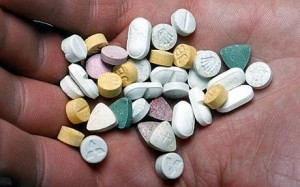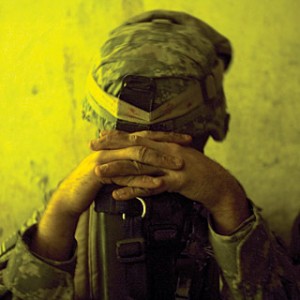While it is known as a popular (but illegal) club drug, MDMA – which also goes by the street name, Ecstasy – is being clinically studied for use in the treatment of Post-Traumatic Stress Disorder (PTSD).

Photo taken from: http://www.telegraph.co.uk/news/uknews/law-and-order/4537874/Ecstasy-no-more-dangerous-than-horse-riding.html
PTSD is a severe anxiety disorder that can develop after experiencing a psychologically traumatic event such as war, rape, childhood abuse, or a serious accident. Treatment of this condition can take a number of years, yet at least one-third of PTSD sufferers will never fully recover.
MDMA has the ability to stimulate a sense of happiness, promote closeness to others, and reduce anxiety. Researchers concerned with the underlying psychology of PTSD are discovering that MDMA, when taken by individuals who have the condition, demonstrate therapeutic benefits. MDMA appears to assist with the process of coming to terms with personal experiences, and controlling intrusive and traumatic memories.
Professor David Nutt, a psychiatrist and former drug advisor for the UK government, is a leading researcher on the therapeutic effects of MDMA. His view is that while MDMA has been made illegal in order to prevent youth from drug abuse, its therapeutic value has been overlooked. It must be added, however, that this is the same David Nutt who was asked to resign after he claimed that ecstasy and LSD were less dangerous than alcohol.
In a recent interview with BBC Radio 4, Professor Nutt discusses why the drug is being studied in clinical research and how it could be useful for treating the condition of PTSD. Click here to listen to a short segment of this interview.
Professor Nutt recently undertook a research study to test the benefits of MDMA for individuals experiencing PTSD, of which the results were promising. In this study, 12 treatment group subjects were given MDMA pills, while 8 control group subjects were given placebo pills. Both treatments were taken alongside therapy sessions. Results showed that ten subjects in the treatment group showed an improvement after two therapy sessions.
Even here in Vancouver, Psychologist Andrew Feldmar, Ph.D., is about to begin a similar study alongside Health Canada. Check out the video below where he talks about the importance of MDMA-assisted psychotherapy research for PTSD.

All in all, the use of illegal drugs as medicine is not a new occurrence. For example, medical marijuana has long been recommended as a treatment for pain, and is increasingly used in mainstream medicine. Ingredients from magic mushrooms have demonstrated calming effects on patients entering a late stage of cancer. There are other examples of the use of illegal drugs to address medical conditions. Will MDMA follow the same path?
Blog post submitted by Jackie Romeyn.



2 responses to “A bitter pill? Illegal narcotics to treat PTSD.”